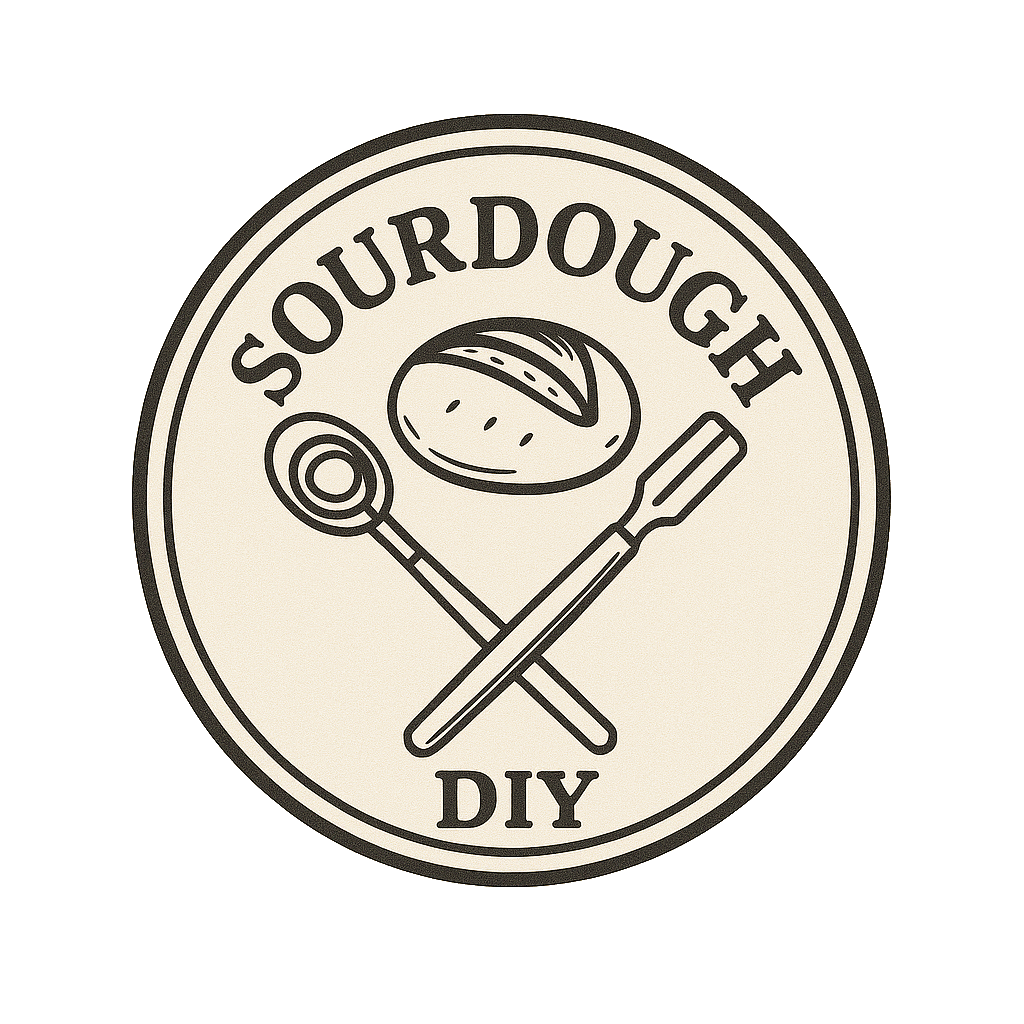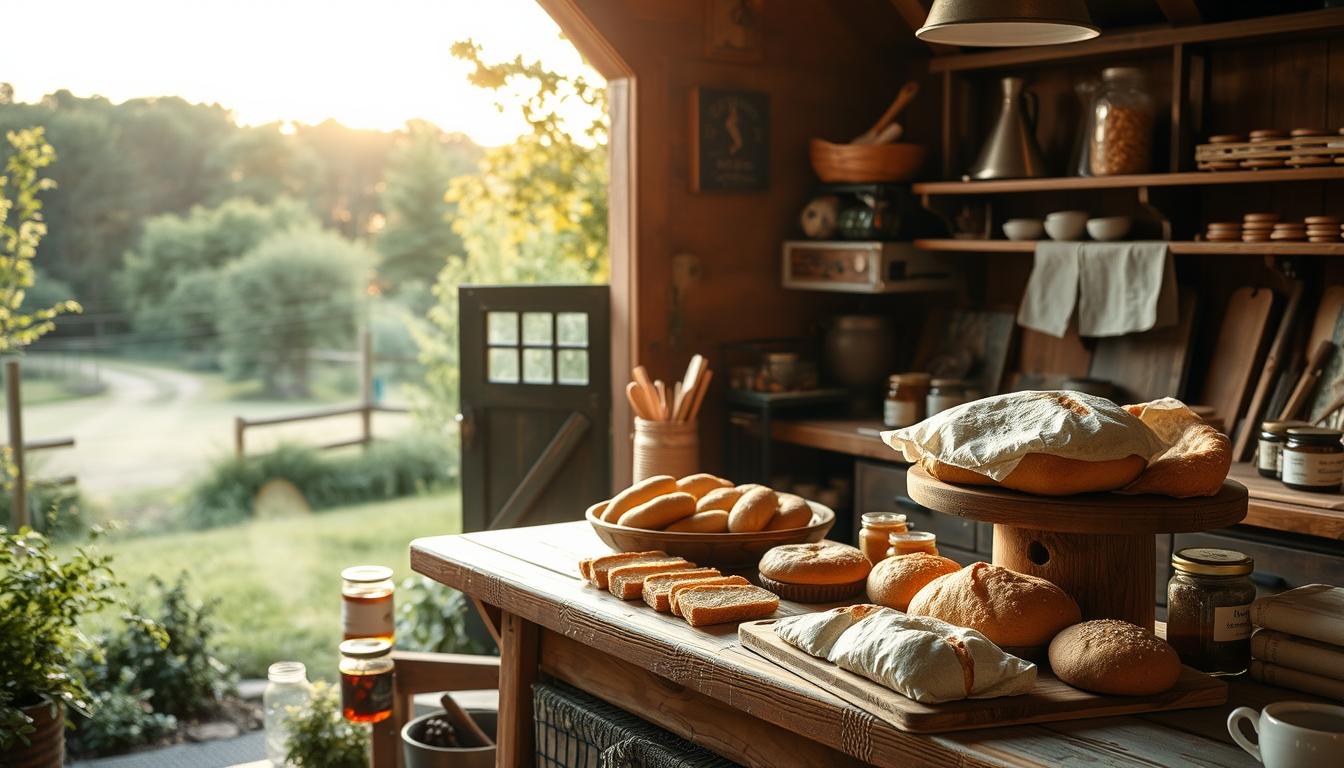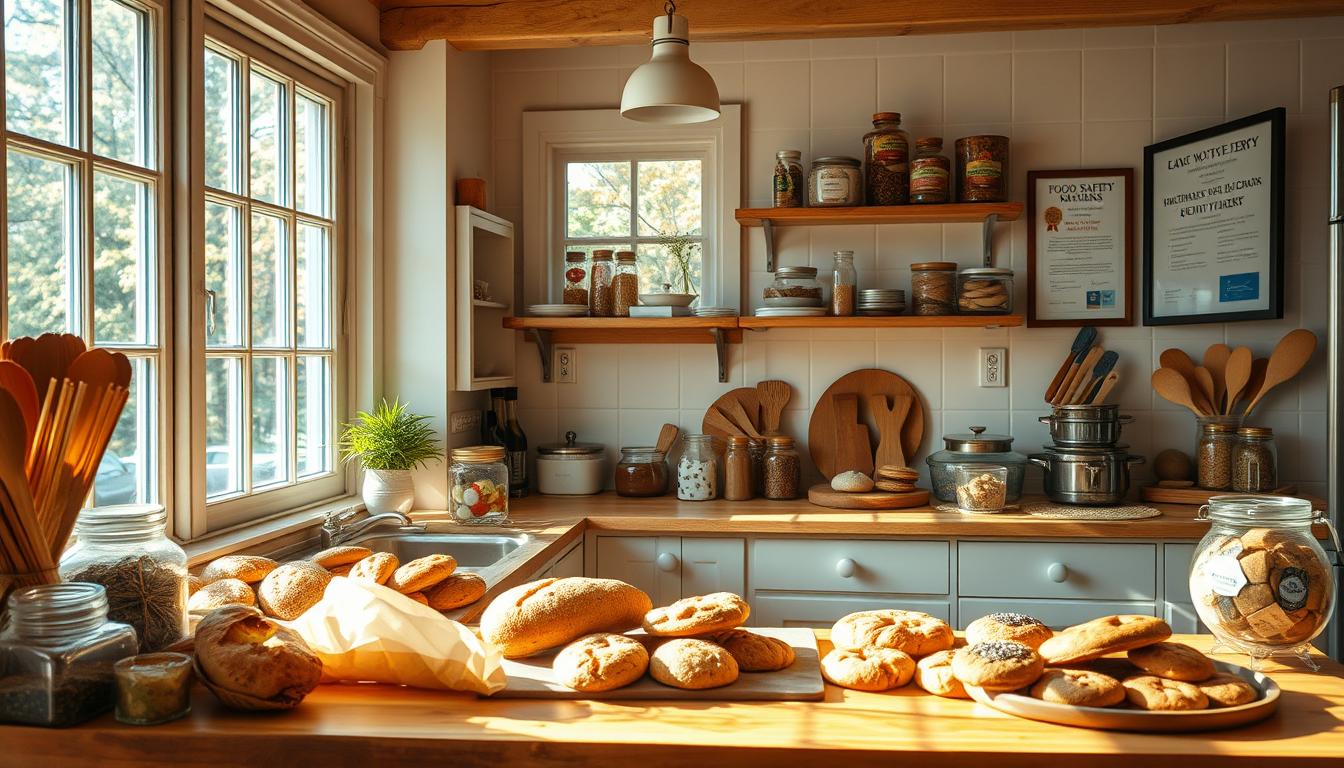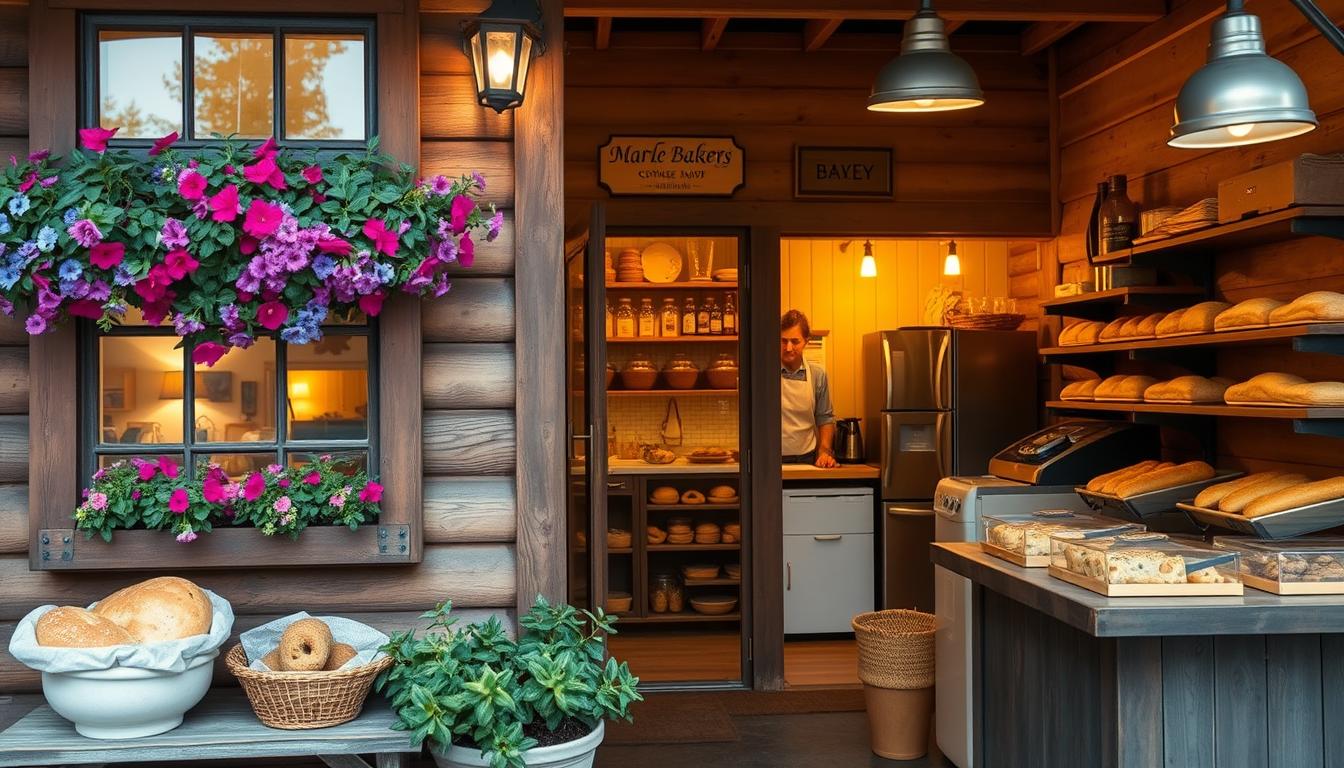The Cottage Food Laws in New Jersey allow individuals to operate a cottage food business from their home, with certain restrictions. This article will guide you through the process of starting a micro bakery, including understanding the legal requirements, setting up your home baking space, creating a business plan, and selling your baked goods.
Key Takeaways
- Understand the New Jersey Cottage Food Law and its requirements.
- Learn how to set up a home baking space that meets the law’s standards.
- Create a business plan and tailored to your micro bakery.
- Discover the best ways to sell your baked goods.
- Comply with all legal requirements to avoid any issues.
- Application for Cottage Food Operator Permits
Understanding New Jersey Cottage Food Laws
For aspiring micro bakery owners in New Jersey, grasping the intricacies of cottage food laws is essential for a successful venture. These laws govern the production, packaging, and sale of certain food items from home kitchens.
Recent Changes to New Jersey’s Cottage Food Regulations
New Jersey has made significant updates to its cottage food laws, expanding the types of foods that can be sold and modifying sales limits. These changes aim to support small food entrepreneurs while maintaining public health standards.
What Products You Can Legally Sell
Under New Jersey’s cottage food laws, you can sell a variety of baked goods, jams, jellies, and other non-TCS foods. Examples include:
- Baked goods like cookies, cakes, and bread
- Homemade jams and jellies
- Dried fruit and nuts
- Candy and chocolates
Sales Limits and Restrictions
While the laws allow for the sale of various cottage foods, there are specific limits and restrictions to be aware of, including annual sales caps and requirements for non-TCS foods.
Annual Sales Caps
New Jersey imposes an annual sales cap on cottage food operations. As of the latest regulations, the gross sales from cottage food operations must not exceed $50,000 annually. Exceeding this cap requires registration as a food establishment.
Non-TCS Food Requirements
Cottage foods must be non-TCS (Time/Temperature Control for Safety) foods, meaning they don’t require refrigeration to prevent bacterial growth. Examples of non-TCS foods include:
- Baked goods
- Jams and jellies
- Honey and other dried goods
Understanding and adhering to these regulations is crucial for maintaining compliance and ensuring the success of your micro bakery.
Legal Requirements for Your Micro Bakery
Before selling your baked goods, understanding New Jersey’s legal requirements for micro bakeries is crucial. Operating a micro bakery under New Jersey’s Cottage Food Laws involves several key legal steps that ensure your business is compliant and successful.
Obtaining a Cottage Food Operator’s Permit
The first step in legalizing your micro bakery is obtaining a Cottage Food Operator’s Permit. This permit is issued by the New Jersey Department of Health and is mandatory for anyone selling cottage foods, including baked goods. To obtain the permit, you’ll need to provide information about your business, including the types of products you plan to sell and the location of your home kitchen.
Food Safety Manager Certification
While not always required, obtaining a Food Safety Manager Certification can be beneficial for your micro bakery. This certification demonstrates your knowledge of safe food handling practices and can enhance your credibility with customers. It’s also a good practice to check with your local health department to see if this certification is required in your municipality.
Local Zoning and Municipal Regulations
Compliance with local zoning and municipal regulations is also crucial. Your home kitchen must meet specific requirements, and you may need to obtain additional permits or licenses from your local government. It’s essential to check with your municipality to understand their specific regulations regarding home-based businesses.
Home Kitchen Compliance
Ensuring your home kitchen is compliant with New Jersey’s Cottage Food Laws is vital. This includes maintaining a clean and safe environment, proper food storage, and adhering to labeling requirements. Regular inspections may be conducted to ensure compliance, so it’s crucial to stay on top of these requirements.
As noted by a food safety expert, “
Maintaining a clean and safe kitchen environment is not just a legal requirement, it’s a matter of trust with your customers.
” Ensuring your home kitchen meets these standards will not only keep you compliant but also build a strong foundation for your micro bakery’s reputation.
Setting Up Your Home Baking Space
Creating a functional home baking space is crucial for producing high-quality baked goods under New Jersey’s Cottage Food Laws. A well-organized home kitchen is essential for maintaining efficiency and ensuring food safety.
Equipment Essentials for a Micro Bakery
To start, you’ll need the right equipment for your micro bakery. Essential items include a commercial-grade mixer, baking sheets, and utensils. Consider the space you have available and the types of baked goods you plan to produce.
| Equipment | Description | Importance Level |
|---|---|---|
| Commercial-grade mixer | High-capacity mixing for large batches | High |
| Baking sheets | Durable sheets for baking various goods | Medium |
| Utensils | Variety of tools for preparation and baking | High |
Food Safety and Storage Considerations
Maintaining food safety is paramount in a home baking environment. Ensure proper storage of ingredients and baked goods to prevent contamination. Use airtight containers and label them clearly.

Workspace Organization Tips
An organized workspace is key to efficiency and productivity. Keep frequently used items within easy reach and maintain a clean workspace. Consider implementing a clean-as-you-go policy to avoid clutter and reduce the risk of contamination.
By focusing on these key areas, you can create a home baking space that is both functional and safe, setting your micro bakery up for success.
Creating Your Micro Bakery Business Plan
To turn your passion for baking into a thriving business, you need a well-structured business plan. This plan will serve as a roadmap, guiding your decisions and helping you navigate the challenges of running a micro bakery under New Jersey’s Cottage Food Laws.
Identifying Your Niche and Specialty Products
Identifying your niche is crucial for standing out in a competitive market. Consider what types of baked goods are in demand and how you can differentiate your products. For instance, specializing in gluten-free or vegan baked goods can attract a dedicated customer base.
“The key to success lies in understanding your customers’ needs and preferences.” Conduct market research to determine the most profitable products for your micro bakery.
Pricing Strategy and Financial Planning
Your pricing strategy should balance profitability with customer affordability. Calculate your costs, including ingredients, packaging, and time, to determine the minimum price you need to charge. Financial planning involves forecasting your income and expenses to ensure the sustainability of your business.
Marketing Your Home-Based Bakery
Effective marketing is vital for attracting and retaining customers. This involves building a strong brand identity and leveraging social media platforms.
Building Your Brand Identity
Your brand identity encompasses your bakery’s values, logo, and overall aesthetic. It should resonate with your target audience and reflect the quality of your products. Consider how your packaging and customer service contribute to your brand’s image.
Social Media Strategies for Bakers
Social media is a powerful tool for bakers, allowing you to showcase your products and engage with customers. Share high-quality images of your baked goods, and use relevant hashtags to increase your visibility. Regularly posting content and interacting with your followers can help build a loyal community around your micro bakery.
Selling and Distributing Your Baked Goods
New Jersey’s Cottage Food Laws offer several opportunities for micro bakeries to reach customers, and understanding these is crucial for success. With the legal requirements and home baking space in place, the next step is to explore the various channels through which you can sell and distribute your baked goods.
Permitted Sales Channels Under NJ Cottage Food Laws
Under New Jersey’s Cottage Food Laws, micro bakeries can sell their products through various channels. These include direct-to-consumer sales, farmers’ markets, and online orders with delivery or pickup. It’s essential to understand the rules and regulations governing each sales channel to ensure compliance.
Managing Online Orders and Delivery
Managing online orders efficiently is crucial for the success of your micro bakery. Consider using e-commerce platforms or social media to take orders. For delivery, ensure that you have the necessary packaging to keep your baked goods fresh during transport. You may also want to explore local delivery services or partner with food delivery companies.
Farmers’ Markets and Direct-to-Consumer Sales
Farmers’ markets are an excellent venue for micro bakeries to connect directly with customers. To succeed, you’ll need to create an attractive booth that showcases your products. Consider offering samples to entice potential customers.
Booth Setup and Presentation
Your booth setup can make or break your sales at farmers’ markets. Ensure that your display is visually appealing, with clear signage and attractive packaging. Organize your products in a way that makes it easy for customers to browse.
Handling Payments and Transactions
Efficiently handling payments is crucial for a smooth customer experience. Consider using a mobile payment processor to accept credit card payments. It’s also a good idea to have some cash on hand for change.
By understanding the permitted sales channels and how to manage them effectively, you can successfully distribute your baked goods and grow your micro bakery business in New Jersey.
Conclusion: Growing Your New Jersey Micro Bakery
Starting a micro bakery in New Jersey under Cottage Food Laws can be a rewarding venture. By understanding and complying with these regulations, you can successfully grow your business and share your baked goods with the community.
As you’ve learned, obtaining a Cottage Food Operator’s Permit and adhering to sales limits and restrictions are crucial steps. Setting up a safe and organized home baking space, creating a solid business plan, and exploring permitted sales channels will also contribute to your success.
Growing your New Jersey micro bakery requires dedication and a willingness to adapt to changing regulations and consumer demands. Focus on identifying your niche, developing a pricing strategy, and marketing your products effectively to drive business growth.
With the right mindset and a commitment to quality, you can turn your passion for baking into a thriving business. Take the first step today and start building your brand in the New Jersey baking community.
FAQ
What is a Cottage Food Operator’s Permit, and why do I need it?
A Cottage Food Operator’s Permit is a permit required by the New Jersey Department of Health for individuals who want to start a cottage food business. You need it to legally sell homemade food products, such as baked goods, jams, and jellies, directly to consumers.
What types of products can I sell under New Jersey’s Cottage Food Laws?
Under New Jersey’s Cottage Food Laws, you can sell non-TCS (Time/Temperature Control for Safety) foods, such as baked goods, fruit pies, jams, jellies, and other shelf-stable products. These products must be prepared in a home kitchen that complies with local health regulations.
Are there any sales limits or restrictions I should be aware of?
Yes, there are sales limits. The gross annual sales for a cottage food business in New Jersey are capped. You must also comply with labeling requirements and ensure that your products are properly stored and transported.
Do I need to have Food Safety Manager Certification to operate a cottage food business?
While a Food Safety Manager Certification is not always required, having some form of food safety training is highly recommended. It can help you understand how to maintain a clean and safe environment for food preparation, reducing the risk of foodborne illness.
Can I sell my cottage food products online or through delivery?
Yes, you can sell your cottage food products directly to consumers through various channels, including online sales and delivery, as long as you comply with New Jersey’s Cottage Food Laws and regulations regarding the sale of homemade foods.
What are the requirements for labeling my cottage food products?
Your cottage food products must be labeled with full labeling information, including the name and address of your business, the name of the product, a list of ingredients, and a statement indicating that the product was prepared in a home kitchen that is not inspected by the Department of Health.
How do I comply with local zoning and municipal regulations for my cottage food business?
To comply with local zoning and municipal regulations, you should check with your local government to understand the specific requirements for operating a home-based business in your area. This may include obtaining any necessary permits or licenses.
Can I participate in farmers’ markets with my cottage food business?
Yes, participating in farmers’ markets is a great way to sell your cottage food products directly to consumers. You must comply with the farmers’ market rules and regulations, as well as New Jersey’s Cottage Food Laws.
What are the temperature control requirements for my cottage food products?
Since cottage food products are typically non-TCS foods, they do not require temperature control. However, you must still handle and store your products in a way that prevents contamination and spoilage.
How can I ensure food safety in my home kitchen?
To ensure food safety, maintain a clean and sanitary environment, handle ingredients and products safely, and follow proper food storage and handling practices. Consider taking a food safety course to learn more about best practices.





Leave a Reply